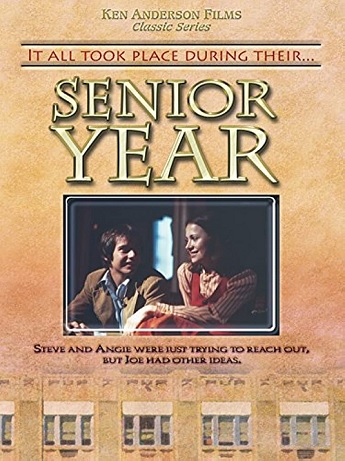This 1976 movie opens with a title card that assures us that we are about to see a true story.
The film deals with a kidnapping. Two kidnappers — one of whom is cocky and arrogant and the other of whom is naïve and speaks with a slight stutter — abduct a middle-aged woman in Minnesota. They toss her into their car and then drive her to an abandoned house. They tie her up. They put a blindfold over her eyes. Otherwise, they’re actually fairly polite about the whole thing. They’re not there to hurt anyone. They just want to get some money.
The woman’s husband is a wealthy banker. The younger, more naïve of the two kidnappers calls the man at his office and informs him that he needs to get all the money that he can gather and leave it at a phone booth at the corner of “66th and Lindale.” Obviously, this isn’t a particularly well thought-out crime. Not only do the kidnappers fail to give a definite ransom demand (“all the money you can get” could be interpreted in many different ways) but they also come up with a drop point that would be ludicrously easy for the cops to track down. Still, the husband agrees to pay the ransom. He also calls the police, which gets the FBI involved. The husband goes home and prays.
Meanwhile, at the abandoned house, the woman prays as well. In fact, she has such a cheerful attitude that the kidnappers even let her remove her blindfold a few times. The younger kidnapper asks the woman to explain why she’s able to handle so things. The woman talks to him about her religious faith….
You can probably guess where this low-budget film is leading. Eventually, the police do catch the kidnappers and the woman is reunited with her husband. At the end of the movie, the actual people involved appear, standing in front of their house. The man says that he did pray as much as he was shown praying in the film. His wife says that one of her kidnappers has written her from prison, asking her to forgive him and thanking her for leading him to God. It’s an interesting moment because the real people are notably awkward in front of the camera and one gets the feeling that neither one was quite as recovered from the experience as the film suggests.
I assume that Held for Ransom is one of those films that was specifically made to be viewed in church basements. It’s a low-budget film with what appears to be a semi-amateur cast. That said, it’s also a well-meaning and earnest film and not one that allows itself to become preachy. The film has its slow spots but watching it feels like the equivalent of stepping into a time machine and going back to 1976. Regardless of whether you agree with the film’s message or not, you are glad that things worked out in the end.


